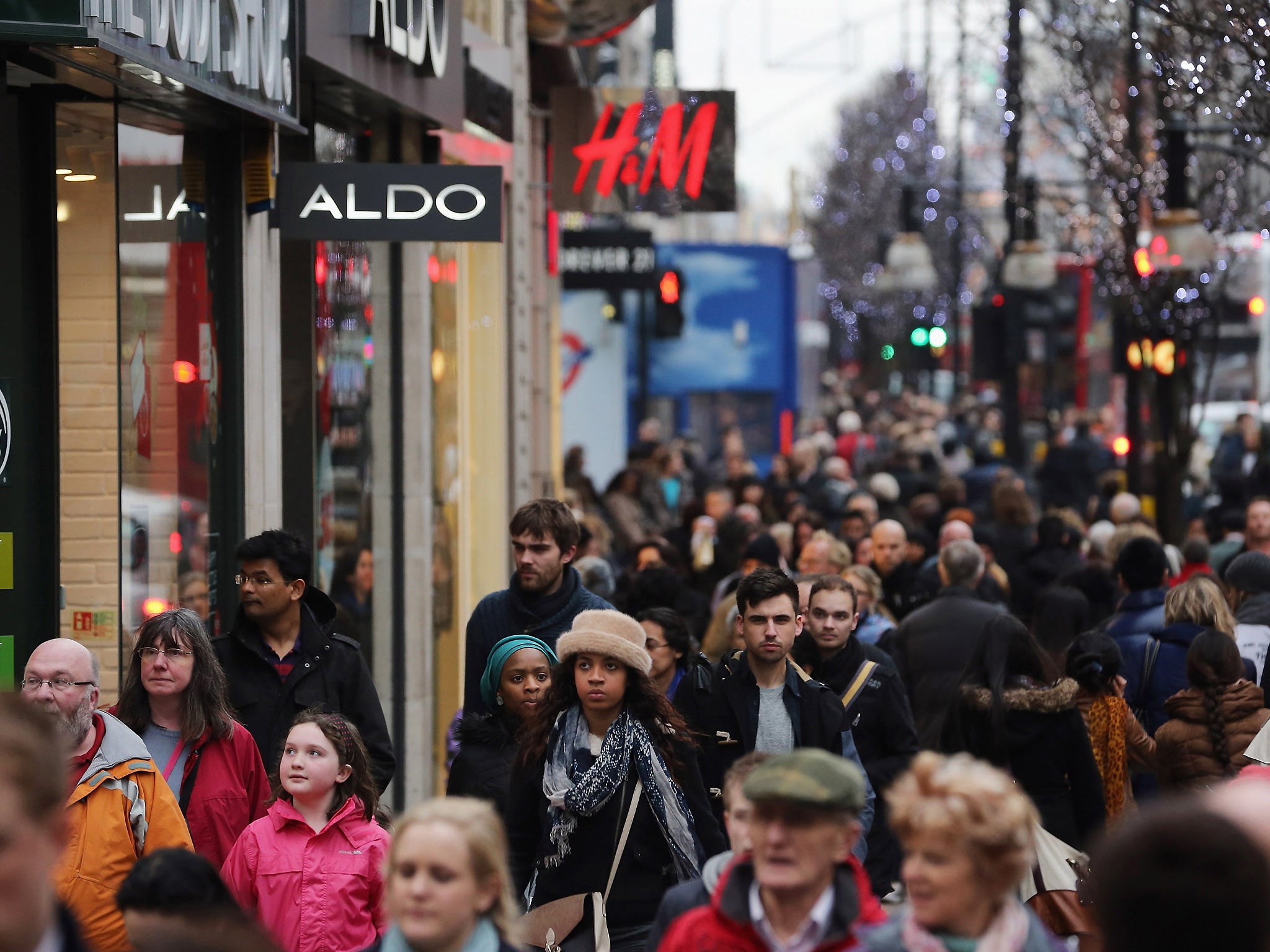With so many shops and cinemas open, the religious side of Easter seemed to pass almost unnoticed
Not so long ago almost everything shut down on Good Friday and Easter Sunday


Your support helps us to tell the story
From reproductive rights to climate change to Big Tech, The Independent is on the ground when the story is developing. Whether it's investigating the financials of Elon Musk's pro-Trump PAC or producing our latest documentary, 'The A Word', which shines a light on the American women fighting for reproductive rights, we know how important it is to parse out the facts from the messaging.
At such a critical moment in US history, we need reporters on the ground. Your donation allows us to keep sending journalists to speak to both sides of the story.
The Independent is trusted by Americans across the entire political spectrum. And unlike many other quality news outlets, we choose not to lock Americans out of our reporting and analysis with paywalls. We believe quality journalism should be available to everyone, paid for by those who can afford it.
Your support makes all the difference.Around noon on Good Friday, I was driving through central London, when four policemen swooped out of nowhere and closed off the junction I was approaching. “It’s a procession,” said one, by way of explanation. “It’ll be 10 to 15 minutes or so.” A procession duly appeared led by a Jesus-figure carrying a cross, followed by what looked like a church congregation of a few hundred, some inexplicably carrying lanterns.
I believe there was a re-enactment of the Passion on Trafalgar Square, and churches everywhere held their usual services. But this was the only public reminder I encountered that Friday was the most solemn day in the Christian calendar.
Now it’s doubtless true that time becomes compressed as you get older, but it doesn’t seem that long ago that almost everything shut down on Good Friday and again on Easter Sunday. This year, though, I was amazed by how much of absolutely everything was working right through the weekend – shops, cinemas, restaurants, pubs. Only banks and public services were uniformly closed.
As someone not altogether convinced of the imperative for shops to open 24/7, I nonetheless emerged from the weekend with some sympathy for those businesses campaigning for the ban on Easter Sunday trading to be lifted. With everything else now working as usual, is it not anomalous that this is the only day when bigger shops must stay closed?
All the same, I can’t but feel something has been lost – a bit of down time, a bit of heritage, perhaps. You don’t have to share the battier views of the one-time Archbishop of Canterbury Lord Carey about David Cameron “aiding and abetting aggressive secularism” and Christians supposedly being “driven underground”, to feel that a country where Easter passes unobserved is a country where secularism has become the norm, without anyone really noticing, let alone caring.
In a way, that little procession down between Central Hall and Westminster Cathedral via Westminster Abbey was emblematic. A small band of the faithful observing their sacred ritual, as the rest of us carried on regardless. Not dissimilar to the early days of Christianity, perhaps?
Was that really the Boat Race?
The BBC may have lost Formula One to Sky and the Grand National to Channel 4, but is it trying to hype the Oxford and Cambridge Boat Race as a star-studded replacement? Its coverage on Sunday smacked of overcompensation on so many levels. There were snatches of Thames history from a boat-borne Dan Snow which had nothing to do with the route of the race. (Was this “sorry” for the lowbrow treatment of the Jubilee regatta?) There were odd interviews with shivering people who had nothing to say; a Facebook-like tribute to a deceased former rower, which felt tonally odd, and a dire sequence from a Crazy Golf course with dinosaurs – at least that’s what I think it was – which seemed to stump even the redoubtable Clare Balding. Finally, after more than an hour of such random drivel, each crew member was accorded a gladiator-style introduction.
Without any swimming protesters, this year’s Boat Race coverage drew comment mainly for the four-letter words yelled out by a miked-up cox. I’m surprised any viewers were still awake enough to notice. The whole charm of the Boat Race was that it reflected old, amateur, university rivalries that no one – except the rowers, of course – took too seriously. Perhaps the Olympics gave the BBC the idea that everything can be made into a world sporting event. It really can’t. Please give us our Boat Race back.
Join our commenting forum
Join thought-provoking conversations, follow other Independent readers and see their replies
Comments